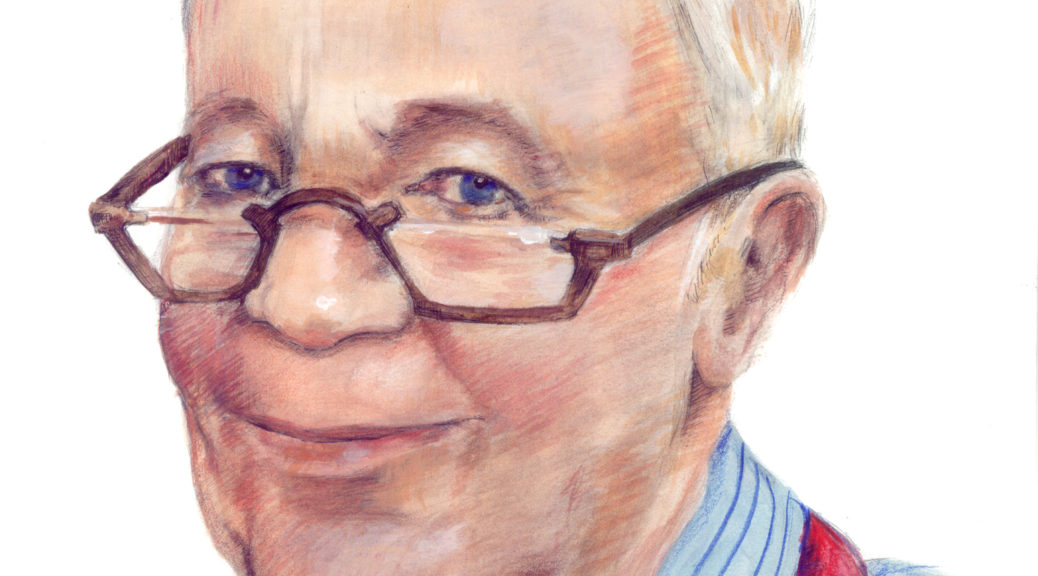CRAIG CLAIBORNE was born on this date, and was an American restaurant critic, food journalist and book author (d: 2000). A long-time food editor and restaurant critic for The New York Times, he was also the author of numerous cookbooks and an autobiography. Over the course of his career, he made many contributions to gastronomy and food writing in the United States.
Claiborne was one of the three best-known food writers in America during the 1960s, 1970s and 1980s during his tenure at the New York Times, the others being Julia Child and James Beard. He legitimized the field of restaurant criticism by maintaining a discreet, anonymous profile in visiting a restaurant and paying his own check. He would evaluate the restaurant’s food, ambiance, and service, giving a rating between zero and four stars. Previously, it was common for reviewers to be paid by the very restaurants they were critiquing. Claiborne’s ample knowledge of gastronomy commanded respect by restaurateurs who used his reviews to improve themselves.
He popularized the cuisines of China, Vietnam, India, Brazil, and a dozen more by having experts raised in the particular traditions to come to his house and cook where he would take meticulous notes, than write about them in the New York Times.
His first and most popular book, The New York Times Cookbook of 1961, sold over three million copies and was eventually translated into seventeen languages. He co-wrote (with Virginia Lee) the first American cookbook of genuine Chinese cuisine, The Chinese Cookbook, published in 1972, as well as twenty other cookbooks, including Craig Claiborne’s Memorable Meals and Craig Claiborne’s Southern Cooking.
Born in Sunflower, Mississippi, he grew up in Indianola, Mississippi. He received a degree in journalism from the University of Mississippi. After working in public relations, he enrolled in the L’Ecole Hôtelière Professional School of the Swiss Hotel Keepers Association in Lausanne, Switzerland.
In 1975, he placed a $300 winning bid at a charity auction for a no-price-limit dinner for two at any restaurant of the winner’s choice, sponsored by American Express. Selecting Pierre Franey as his dining companion, the two settled on Chez Denis, a noted restaurant located in Paris, where they racked up a $4,000 tab on a five-hour, thirty-one-course meal of foie gras, truffles, lobster, caviar and rare wines. When Claiborne later wrote about the experience in his New York Times column, the newspaper received a deluge of reader mail expressing outrage at such an extravagance at a time when so many in the world went without. Even the Vatican and Pople Paul VI criticized it, calling it “scandalous.” It was also noted that he and Franey ordered nearly every dish on the menu, but they took only a few bites of each one. Despite its scale and expense, Claiborne gave the meal a mixed review, noting that several dishes fell short in terms of conception, presentation or quality.
He lived most of his adult life in Manhattan and East Hampton, Long Island. He was known for his elaborate New Year’s Eve and birthday parties, as well as his Fourth of July picnics. Although he was out gay man to most of his friends and colleagues, he was of that generation that, sadly, struggled to come to terms with their sexuality. In his autobiography, A Feast Made for Laughter (1982), Claiborne described a bizarre, almost Faulknerian, childhood and adolescence in small-town Mississippi where he was mocked by schoolmates for his meek temperament and dislike of sports and had explicit sexual contact with his own father on at least one occasion. His mother was a warm and very genteel Southern lady, but doting and often overprotective of her young son. The young Claiborne often sought solace in the company of his mother’s African-American kitchen and housekeeping staff, whose food, humor and culture he came to love.
He died of a heart attack on January 22, 2000.
